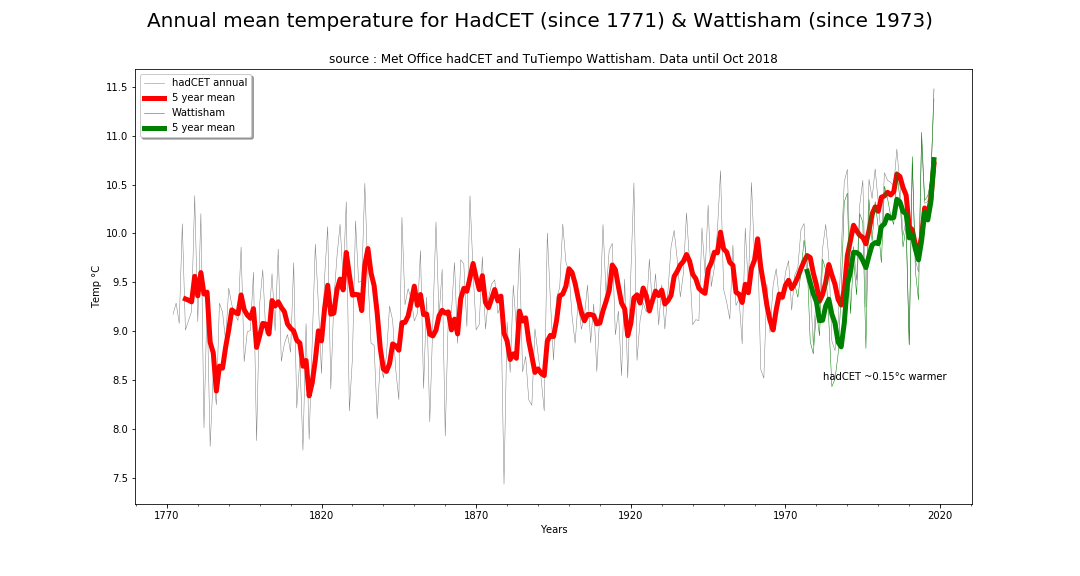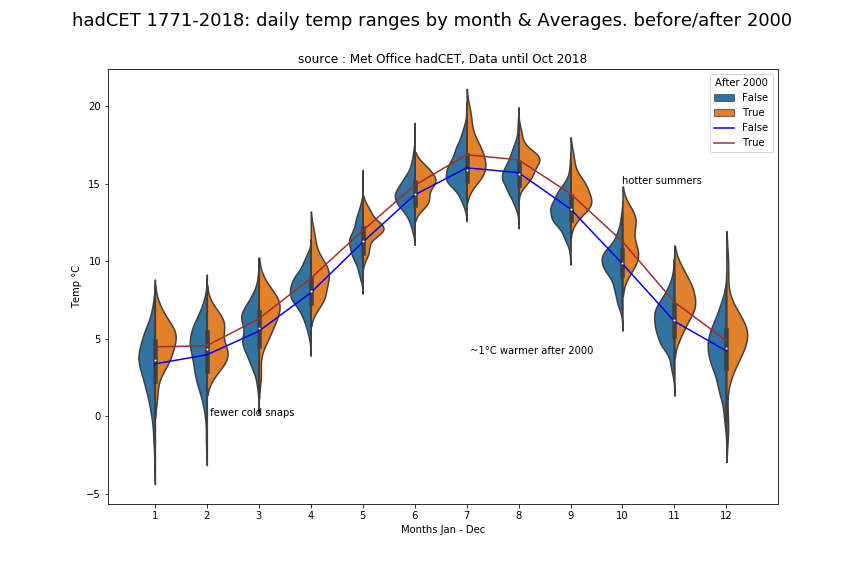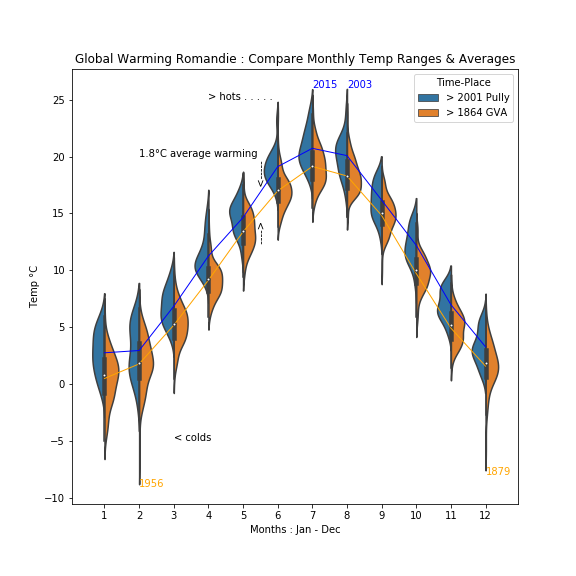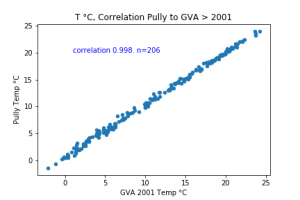Following my analysis of the situation in Romandie I tried the same for Suffolk, UK.
NOTE : Since this is also post-IPCC 48th session publication (http://ipcc.ch/) – the stunning summary for policymakers by global scientists (see refs below) on global warming, I’ve highlighted some of their key recommendations here.
Firstly, the UK data sets are much harder to access than Europe and unless you look really hard the Met Office will charge you (quoted me £275) to get the data. I understand the need ‘secure’ data and prevent misuse but still the conspiracy theorists love this apparent cloak and dagger stuff.
The hadCET is the oldest continuous temperature dataset (worldwide) based on daily records from Hadley Central England average (min/max) temperatures since 1773!
Below is the hadCET data showing a trend in 20th century for warming with fewer cold snaps and more warm spells. I also overlaid the Wattisham data set from 1971, which was was cobbled together from Met office and Tu Tiempo sources.

Secondly the impact of warming is not as strong in UK as for Romandie, I guess it’s to do with the maritime climate which is possibly why springtime seems ‘insulated’ from the warming compared with summer. This is reinforced by IPCC findings see A1.2 in their report.

Wattisham daily temperature records are available since 1973 and apart from a gap in 1977 they are good and strongly correlated (0.993) to hadCET (0.15°c cooler), so I just used hadCET for this anaylsis and applied to Suffolk.
SUMMARY : Broad agreement with IPCC numbers meaning we might hit 1.5°c warming by 2030 (already there in Romandie). The consequences are alarming see IPCC (http://ipcc.ch/)
- continues rise in sea levels until 2100 no matter what we do now, if we can keep global warming at 1.5°c sea level rise will be reduced by 0.1m impacting around 10 million people directly.
- more droughts and deluges
- more extreme hot periods
- loss of species,,,,, read 34 pages of horror


